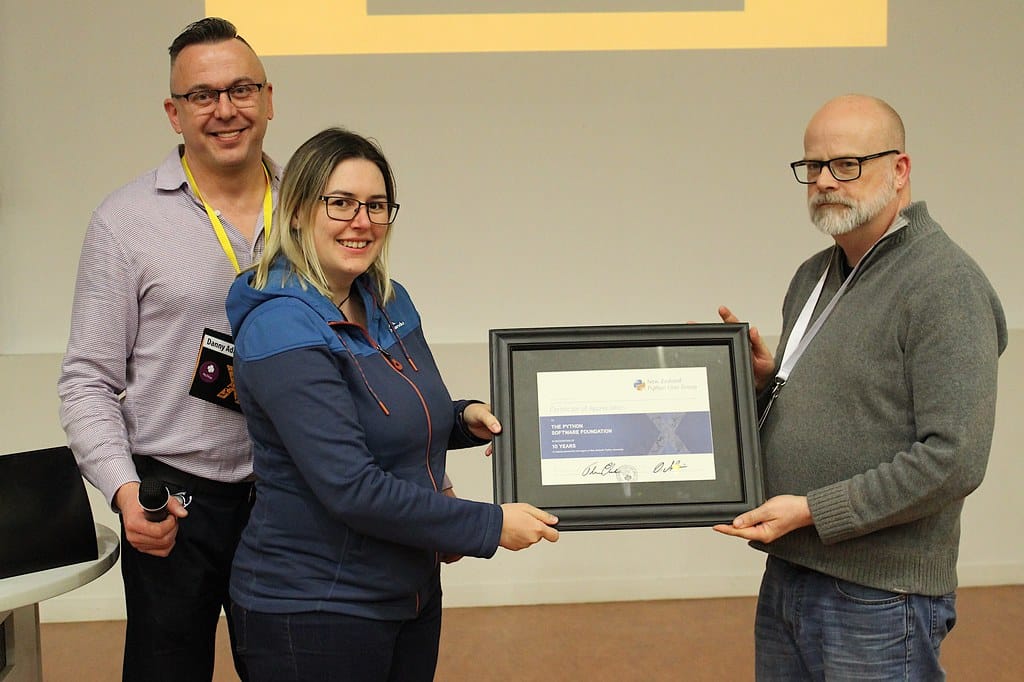The Unsung Heroes: Inside the Python Software Foundation's Mission to Keep the World's Code Running
Every day, millions of developers around the globe fire up their computers and type import pandas or pip install requests without giving it a second thought. Behind these simple commands lies a complex ecosystem managed by one of the most influential yet understated organizations in technology: the Python Software Foundation (PSF). As Python powers everything from Netflix's recommendation algorithms to NASA's space missions, the PSF quietly ensures this critical infrastructure remains free, accessible, and secure for everyone.
More Than Just a Programming Language
The Python Software Foundation isn't just maintaining a programming language—it's stewarding a digital ecosystem that has become fundamental to modern computing. Python ranks as the second most popular programming language globally, with over 8.2 million developers using it regularly according to Stack Overflow's 2023 survey. The language powers artificial intelligence breakthroughs, scientific research, web applications, and automation tools across virtually every industry.
"We're not just maintaining code; we're maintaining trust," explains Deb Nicholson, Executive Director of the PSF. "When a developer installs a Python package, they're trusting our infrastructure, our security practices, and our commitment to keeping this ecosystem healthy."
The PyPI Challenge: Managing 480,000 Packages
At the heart of the PSF's operations lies the Python Package Index (PyPI), the primary repository for Python software packages. This digital warehouse hosts over 480,000 packages that have been downloaded more than 800 billion times. To put this in perspective, that's roughly 100 downloads for every person on Earth.
Managing this scale presents unique challenges. The PSF's infrastructure team monitors thousands of servers, prevents malicious package uploads, and ensures 99.9% uptime for a service that much of the world's software depends on. In 2023 alone, they blocked over 20,000 potentially malicious package uploads and resolved 15,000 security reports.
Financial Transparency in Open Source
Unlike traditional tech companies, the PSF operates on donations and grants, with total revenue of approximately $3.5 million annually. Major contributors include Google, Microsoft, and the Chan Zuckerberg Initiative, but the foundation also receives thousands of smaller donations from individual developers.
The organization publishes detailed financial reports, showing exactly how funds are allocated: 40% goes to PyPI infrastructure and security, 25% to community programs and grants, 20% to developer salaries, and 15% to operational costs. This transparency has become a model for other open-source foundations.
Supporting Underrepresented Communities
Beyond infrastructure, the PSF actively works to diversify the Python community through targeted programs. The organization has awarded over $1.2 million in grants since 2020 to support Python education in underrepresented communities, fund accessibility improvements, and sponsor regional Python conferences worldwide.
Their Python Mentorship Program has paired 400+ mentors with new programmers, with participants reporting a 78% increase in confidence and a 65% higher likelihood of contributing to open-source projects. These efforts directly address the tech industry's diversity challenges while strengthening Python's global community.
Security in the Spotlight
Recent supply chain attacks on open-source repositories have thrust the PSF into the cybersecurity spotlight. The foundation has responded by implementing two-factor authentication requirements for popular packages, launching a security advisory database, and partnering with security firms to conduct regular audits.
"Security isn't just about preventing attacks—it's about maintaining the trust that makes open source possible," notes PSF Security Response Team member Mike Fiedler. The foundation now employs dedicated security staff and has established a $100,000 security fund for rapid response to threats.
The Road Ahead
As Python enters its fourth decade, the PSF faces new challenges: supporting AI and machine learning workloads, managing exponential growth in package downloads, and ensuring the language remains accessible to the next generation of developers.
The foundation is investing in modernizing Python's infrastructure, exploring sustainable funding models, and expanding educational initiatives. Their upcoming Python 3.12 release includes performance improvements and enhanced security features, demonstrating continued innovation despite the challenges of maintaining backward compatibility for millions of existing applications.
The Foundation That Keeps Digital Infrastructure Running
The Python Software Foundation represents something remarkable in the technology world: a nonprofit organization successfully maintaining critical digital infrastructure that billions of people rely on daily. Their work ensures that whether you're a student learning to code or a data scientist training the next breakthrough AI model, Python remains free, secure, and accessible.
In an industry often dominated by corporate interests, the PSF stands as proof that community-driven organizations can successfully steward essential technology. Their transparent operations, commitment to diversity, and focus on long-term sustainability offer a blueprint for managing open-source projects at global scale—making them not just maintainers of code, but guardians of digital equity.
